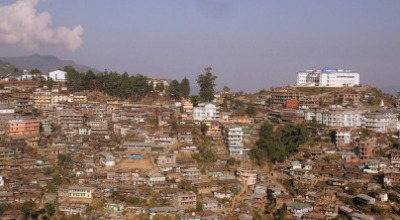Satan Worship Gains Foothold Among India’s Youth
Christian groups in India’s northeastern state of Nagaland are working to quell the rapid growth of Satanism after reports that thousands of teenagers from churches had taken up devil worship in recent months.
The Vatican’s Fides news agency recently reported that more than 3,000 young “worshipers of Satan” have been identified in Nagaland’s capital of Kohima alone.
The actual strength of Satan worshippers is difficult to determine, but such groups also exist in Nagaland’s largest city of Dimapur, and they are using social media sites such as Facebook and Twitter to expand their network, said the Rev. Wati Longkumer, director of the Nagaland Missionary Movement, a group of mostly Baptist associations and churches.
“Some of the Christian youth who have renounced Satan worship have told us that they would be called for services after midnight at the Kohima War Cemetery and other locations, and asked to wear black T-shirts and be called by their new nicknames,” Longkumer said.
Longkumer said he has seen membership forms for a group calling itself the Black Bulls and inviting youngsters to become part of devil worship.
Longkumer’s organization, part of the Nagaland Baptist Church Council, which consists of more than 1,300 churches, has assigned its youth department to conduct a detailed report.
More than 90 percent of Nagaland’s 2 million residents are Christians, and about three-fourths of those identify as Baptist.
The Rev. Ben Dang Toshi Longkumer, a Nagaland-based representative of the Evangelical Fellowship of India (no relation to Wati Longkumer), said the parents of numerous youngsters have expressed concerns about their children leaving home around midnight.
“Satan worship has considerably changed the demeanor and the worldview of the youth, though no criminal activity by them has been reported thus far,” he said.
In April, church groups in the state organized crusades to rescue youngsters from Satan worship. The Roman Catholic Church in Nagaland has said it is shocked to learn about the phenomenon and is working with Protestant groups to counter it.
The Rev. Zotuo Kiewhuo, senior pastor of Koinonia Baptist Church in Kohima, said the cult is spreading like “wildfire” due to an identity crisis among the youth of the state plagued with corruption, insurgencies and intratribal conflicts.














































